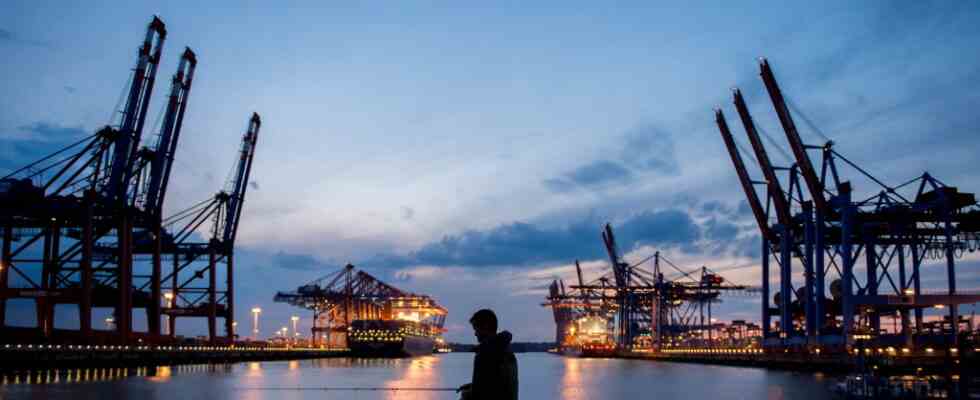Status: 01/10/2023 5:48 p.m
High inflation, rising interest rates and the Russian war of aggression against Ukraine are slowing global economic growth. Further shocks could even lead to a global recession.
The economic prospects for the global economy are clouding over. The World Bank lowered its growth forecast today from 3.0 percent to just 1.7 percent and warned of a global recession. “I am deeply concerned that the slowdown may continue,” said World Bank chief David Malpass. In practically all regions of the world, per capita income will grow more slowly than in the period before the corona pandemic, according to the report “Global Economic Prospects”.
Leaving aside the crisis years of 2009 and 2020, global economic growth of around 1.7 percent would be the lowest in almost three decades. The World Bank expects a noticeable cooling off for the industrial nations. Growth rates of only 0.5 percent are predicted for both the USA and the euro zone.
Inflation remains the most difficult challenge
The biggest challenge remains the high inflation. While it is likely to fall, central banks need to continue raising interest rates or keeping them high to ensure price stability, the World Bank says. However, this comes at a price: the strict monetary policy increases the risk that the economy will be slowed down so much that the labor market and economy will be stalled.
Falling investments would be problematic
However, weaker growth in the global economy will hit developing countries particularly hard, according to Malpass. “There is a devastating disconnect between the regions that need large amounts of new investment to support growing populations and actual investment flows,” he warned.
Emerging and developing countries are already struggling with high levels of debt and weak currencies. With falling investments, the consequences of the climate crisis could also be more difficult to deal with, and the reduction of poverty and inequality would not progress. According to the World Bank report, due to the limited financial leeway in emerging and developing countries, the international community is called upon to increase subsidies significantly at this point.
Warning of unexpected shocks
The experts spoke of a fragile situation. Any unexpected shock could also lead to a global recession. Examples of this were new geopolitical tensions or a flare-up of the corona pandemic. “The world economy is on a knife edge,” said forecast chief Ayhan Kose of the dpa news agency in Washington.
“If we experience another global recession – because we just had one in 2020 – then that will be historic,” said economist Kose. It would be the first time since the 1930s that the world economy would experience two recessions in the same decade. The risk is definitely there – even if a recession is not the World Bank’s baseline scenario at the moment: “If it comes to that, I think it will be quite expensive.”

